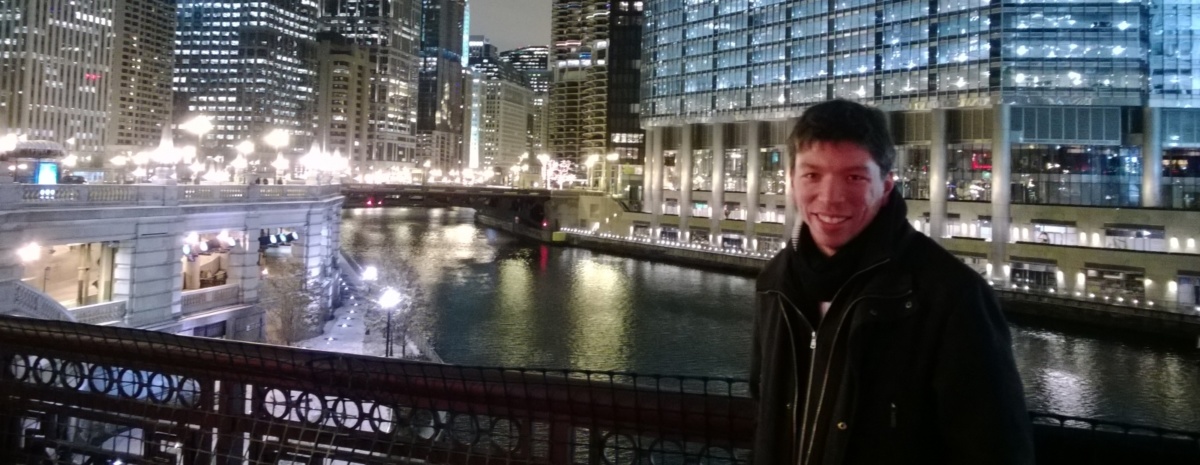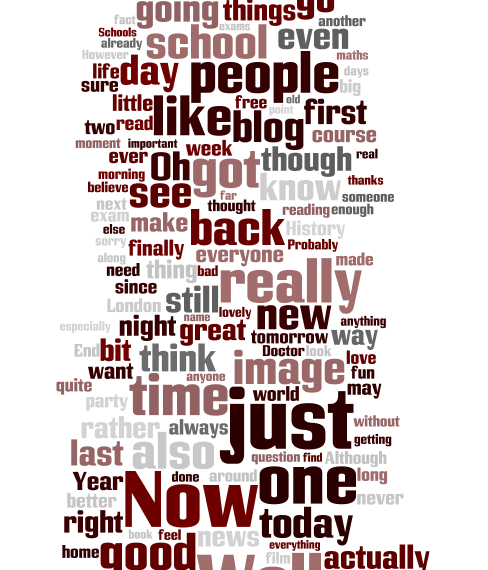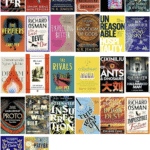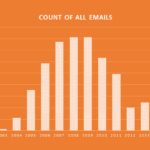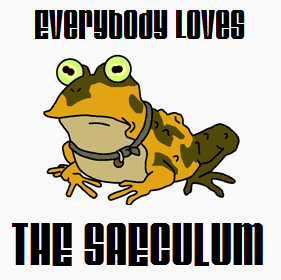
Everybody loves The Saeculum
This word has lodged itself in my brain today: saeculum (sigh – q – lum). Or more precisely the SAECULUM – partly because Dr Ryan always puts Latin in capitals on the whiteboard and partly because he pronounces it with deep emphasis. It means a period of time; in the context of Augustine‘s Christianity ‘the’ saeculum means a very specific period of time between the coming of Christ and Judgement Day. The logic is actually as typically tortuous and profoundly silly as with all the rest of it, but we’ll play along. We know the world was created in six days. (Shut up.) We know that on the sixth day, God created man. But we also know (and I’m using ‘know’ in a deeply loose sense) that a day with the Lord is worth a thousand days! So in a world without radiocarbon dating it turns out that Jesus came – to ‘re-create’ man – at the beginning of the sixth ‘age’. Nifty.
Augustine then goes on to decide that the saeculum is actually a non-sacred period of time, which carries the uber-convenient property of being immune from Biblical prophecy. Which I suppose means that anyone claiming that they can apply Biblical prophecies to today is really messing with St Augustine – is that wise?
But whatever – I just love the word. I want SAECULUM t-shirts. I want people to put ‘THE SAECULUM’ at the end of my address on post. And looking it up on Wikipedia makes it clear why: emerging from this curious and strange word comes the sight of a dear friend – ‘secular’. Of course! Ah – the beautiful secular world. And its buses.
(And to profoundly alienate everybody who struggled through a linguistic post, here’s a political bit to finish you off with: this BBC story made me smile today. It’s on an OECD report pointing out the “remarkable” redistribution which Labour really did manage to sneakily carry out from 2000 onwards. At a time when the New Labour narrative is clearly at an end, it’s nice to see what really was achieved.)
But only because I couldn’t resist giving it a bit more scope: this was created based on everything that I’ve ever blogged, ever. And this means going back to April 2004, so hooray for storing blogs as databases!
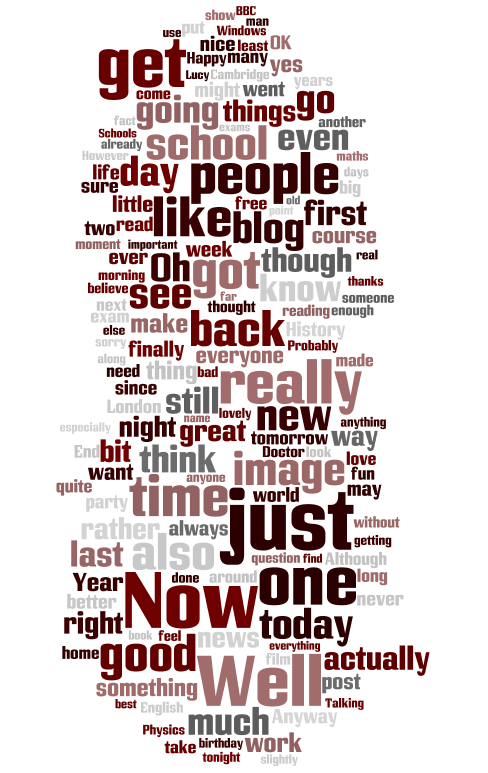
There you go, that’s my life right there
I think the conclusion is obvious: this is a blog about now. Which is not surprising, really. [Note – some of the entries are a bit dubious: I’m not that vain and don’t really say ‘image’ all the time, but it’s part of the HTML for putting in pictures which I didn’t manage to all strip out first.]
(And speaking of blogs, Nic is back and threatening anyone who doesn’t mention this fact with the warning that something vaguely sinister may happen ‘when you’re next walking down the street alone’. Which, to be absolutely honest, comes across as a pretty rubbish threat at the moment as the answer is quite clearly nothing at all, in Cambridge at least. It’s tempting fate in the extreme, but I just can’t quite take the imagined threat of Cambridge-based muggers and assorted street threats seriously. I mean, for god’s sake, it’s Cambridge – are you going to put on a gown first?)
Highly amusing criticism of the week, courtesy of Saoirse: “The Dominic View… forgets that there are real problems utterly unrelated to public transport.” ![]()
(Nicked from Bill)
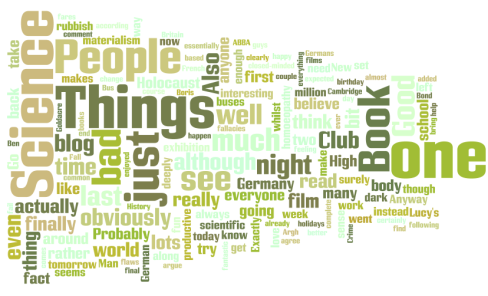
Made from September’s blog posts
Have a play!
I’m sorry that this is a rather derivative blog post but by way of some brief new material: happy birthday Dad! (for Thursday), Lucy’s been visiting and resting from the hectic life of a proper university and I went to an SWP meeting and watched Merlin in a single night: neither activity was my fault, but I’m not sure which is the lesser of social evils.
Oh, and Professor Tony Badger’s office is the best and filled with glorious Americana – a gold bust of Kennedy here, an American football helmet there. I love it ![]()
Ooh, I love lectures at the moment. Many historians aren’t so fond of attending, and though I tend to side with Matt’s “well, we are paying for it” line I think I also just enjoy the format. (Part of me will always see it as a luxurious indulgence just to be able to sit back and not have to contribute anything, unlike school.) But yes, today we had some rather cool stuff on natural law, and it’s great to have someone kindly walk you through from Aristotle to Hobbes. And it also reminds me of the rather useful chameleon-like ability of History to take on many other subjects: why, to take an entirely hypothetical example, would anyone ever want to run away and do – ooh, I don’t know – A-Level Philosophy, say, when they could stay in a rather more comprehensive educational experience? ![]()
And talking of Philosophy, I must take advantage of the ever-present incestuousness (not my phrase) of blogs and have a barely disguised rant against the very idea of an ‘opposition’ between Arts \ Humanities and Science. Yeah yeah, I know CP Snow got there first, but at times I even find it rather difficult to understand how on earth anyone could believe in such a thing.
For two things to oppose each other, they must first be playing the same game, yes? A tennis player can oppose another tennis player over a game of tennis, but a tennis player cannot meaningfully ‘oppose’ a basketball player since each are playing under rather different rules. You can oppose someone who says that killing is right by arguing that killing is wrong, but not by arguing that killing is great fun. (For the people who will inevitably read this and smirk knowingly at how ‘black and white’ these examples are, they might want to consider what a beautiful example of opposition they are setting up between ‘black and white’ and ‘shades of grey’.)
Science is the method (the method, dammit, not the body of knowledge) by which we seek to understand the physical world. The Arts is demonstrably not, even though it might sound a bit like it, since the ‘physical world’ of Science is the world which would exist without us anyway. (Obviously, something like ‘the human brain’ wouldn’t exist without us, but the underlying concepts behind how that one specific organ operates would.) Artistic works are – to state the blindingly obvious – subjective. It is us – or other conscious minds – who think of something as being beautiful or terrifying or profound. Sure, a poet who talked about the beautiful night sky and then insisted that this was an objective truth about the sky would be setting themselves up in opposition to Science, but they would also be setting themselves up in opposition to another poet who thought of the dark and gloomy night sky as a harbinger of doom.
OK, so they’re not in opposition to each other in what they actually say. But perhaps one is ‘more important’ than the other, and so the opposition is actually between which you consider more important. But importance is subjective – importance doesn’t exist without us. So you have to ask… important for what? And why are we bothering to even come to an answer, when we know very well that we don’t – and couldn’t – choose between them?
Proclaiming that you can somehow compare the relative merits of Arts and Science is to make a nonsense of language, which is precisely the thing that the “read some poetry!” brigade (and they’re right, it’s good stuff) claim to value so much. It’s equivalent to accosting someone on the street and shouting “Oi! You claim to be a good person, but here you are walking down the street, an action which is nothing to do with right and wrong!”. Or berating this blog post for being a really terrible skipping rope.
(Advertisement – hey! Are you an Arts undergraduate feeling a little bit needy for some Science? Then ask a medic over dinner how antiretrovirals work! I did, and I got a beginner’s course in RNA absolutely free.)
P.S. Aha, so you’ve noticed that by this logic religion – or more specifically, theology – can’t be said to be ‘in opposition’ to Science, since it isn’t a method by which we seek to understand the physical world? The problem is that theology actually makes a great deal of claims about the physical world, and therefore – sorry – most definitely is. Unless your theology is entirely and absolutely metaphysical, which seems to hinge on the admission that its existence would make absolutely no difference one way or the other to the physical world at all. “We’re all dreaming in a world and there could never be any evidence of the ‘real’ world.” “God exists and must be known by faith alone, but takes no interest and has no effect at all on the universe.” Well, fantastic – now start choosing (how, again?) between the infinite varieties of such untestable beliefs.)
As promised, now that I (finally!) have proper Internet access I can blog a photo or two…
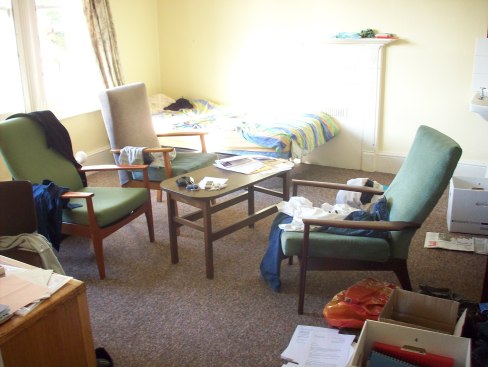
Sorry about the mess!
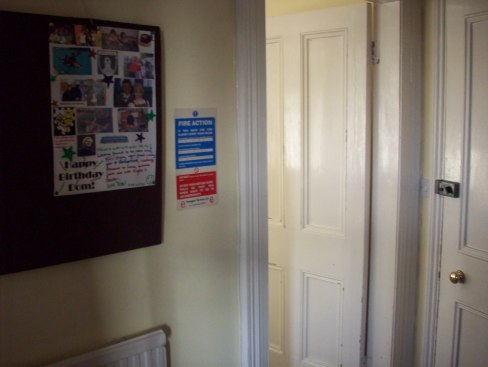
The, ur, antechamber
Although there has been a lot going on, I wish to pick one amusing highlight from the last week (aside from, y’know, the Continuing Collapse Of Global Capitalism (TM)) – the moment when I was walking home and passed a guy handing out leaflets for Henry V. (Not in a belated act of campaigning, you understand, but for the play.) He was also, at the same time, reciting lines from said play in grand Shakespearian style. Being a Londoner I put on my best ‘no I don’t want another London Lite’ face and tried to walk on by before the guy stopped me, looked directly into my eyes and declared – in the same Shakespearian manner – “but we Ken Livingstone supporters must stick together!”
It did take me a moment of wondering whether I was inadvertently wearing some giant badge before I realised that I’d campaigned with him back in April ![]()
